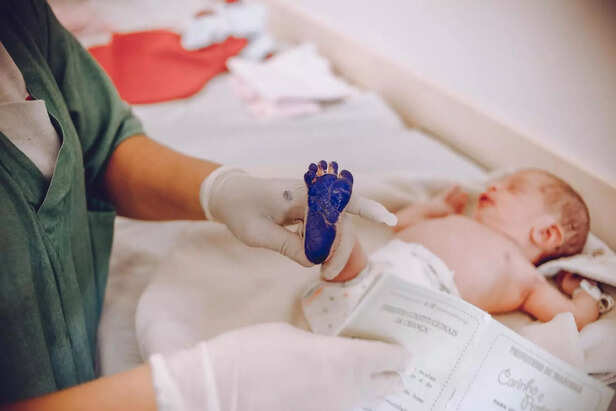The United Nations Reports a Decline in Birth Rates Worldwide — India Included in the List
Ushnish Samadder | Pexels | Jun 11, 2025, 12:39 IST
( Image credit : Pexels, Timeslife )
The United Nations Population Fund (UNFPA) has revealed in a recent survey that millions of people around the world are unable to have children according to their wishes. The survey was conducted across 13 countries, including India.
It has been over five decades since the implementation of the "Hum Do Hamare Do" (We Two, Our Two) policy. Over time, social dynamics have evolved, and couples' perspectives on family planning have also undergone significant change. Moving beyond the traditional two-child norm, society is now taking a different approach to childbearing. A recent survey by the United Nations Population Fund (UNFPA) highlights this shift, revealing that millions of people around the world are unable to have children according to their personal choice. The findings suggest that reproductive freedom remains limited for many, despite changing societal attitudes.

The survey was conducted on 14,000 women across 14 countries, including both economically advanced and developing nations such as India, the United States, South Korea, Thailand, Italy, Hungary, Germany, Sweden, Brazil, Mexico, South Africa, Indonesia, Morocco, and Nigeria. The study focused on capturing the views of people from diverse economic backgrounds. According to the findings, the global fertility rate has seen a significant decline. Several key reasons are believed to be behind this trend, ranging from financial constraints and job insecurity to health issues, inadequate healthcare access, and concerns over political, social, and future uncertainties.
The survey highlights that overpopulation is not the main concern; rather, it focuses on the various obstacles people face when trying to have children by choice. Andrea M. Woznar, spokesperson for UNFPA India, pointed out that India’s fertility rate has dropped significantly—from around five children per woman in 1970 to just two today. Despite many mothers raising their children, social inequalities across states, communities, and groups remain noticeable.

With life expectancy increasing, key life stages like marriage are happening later. Gerontologist Dhiresh Chaudhuri noted that many women now marry in their late 30s or even 40s. In affluent families, the desire for children is declining due to daily pressures and couples’ preference for independent lifestyles.
The rise of nuclear families means many couples avoid the challenges of having a second child. Parenting consultant Payel Ghosh explained that working women struggle with repeated maternity leaves, and physical exhaustion also plays a role in reluctance toward having more children.
Explore the latest trends and tips in Health & Fitness, Travel, Life Hacks, Fashion & Beauty, and Relationships at Times Life!

Economic challenges have become a significant barrier to parenthood.
( Image credit : Pexels )
The survey was conducted on 14,000 women across 14 countries, including both economically advanced and developing nations such as India, the United States, South Korea, Thailand, Italy, Hungary, Germany, Sweden, Brazil, Mexico, South Africa, Indonesia, Morocco, and Nigeria. The study focused on capturing the views of people from diverse economic backgrounds. According to the findings, the global fertility rate has seen a significant decline. Several key reasons are believed to be behind this trend, ranging from financial constraints and job insecurity to health issues, inadequate healthcare access, and concerns over political, social, and future uncertainties.
- Economic challenges have become a significant barrier to parenthood. According to the survey, nearly 4 in 10 respondents (39%) said they were unable to start or expand their families the way they wanted due to financial difficulties and constraints.
- Job insecurity (21%), high household expenses (22%), and lack of access to pediatric healthcare (18%) have pushed parenthood out of reach for many. These factors collectively make it difficult for individuals and couples to consider starting or growing a family.
- Poor parental health (15%), female infertility (13%), and lack of access to fertility treatments (14%) have further complicated the situation, making it even more difficult for many to have children.
- Many people have stated that due to political instability, social pressures, and uncertainty about the future, they are choosing not to have children. These concerns are influencing their decisions regarding starting or expanding their families.
- The survey found that 19% of people said they were unable to have children according to their wishes due to pressure from their partner or family. This external influence affected their reproductive choices and family planning decisions.
The survey highlights that overpopulation is not the main concern; rather, it focuses on the various obstacles people face when trying to have children by choice. Andrea M. Woznar, spokesperson for UNFPA India, pointed out that India’s fertility rate has dropped significantly—from around five children per woman in 1970 to just two today. Despite many mothers raising their children, social inequalities across states, communities, and groups remain noticeable.

The survey found that 19% of people said they were unable to have children according to their wishes due to pressure from their partner or family.
( Image credit : Pexels )
With life expectancy increasing, key life stages like marriage are happening later. Gerontologist Dhiresh Chaudhuri noted that many women now marry in their late 30s or even 40s. In affluent families, the desire for children is declining due to daily pressures and couples’ preference for independent lifestyles.
The rise of nuclear families means many couples avoid the challenges of having a second child. Parenting consultant Payel Ghosh explained that working women struggle with repeated maternity leaves, and physical exhaustion also plays a role in reluctance toward having more children.
Explore the latest trends and tips in Health & Fitness, Travel, Life Hacks, Fashion & Beauty, and Relationships at Times Life!
